Just as the start-ups were about to begin their pitch, my friend George leans over and says, “Kristen … Statusphere … I think it has a lot of potential and you should meet with her because you’re both in marketing.” After listening to the presentations, I reached out to Kristen and we met for coffee. During the meeting, my brain was on tape delay because she tends to talk really fast, thinks fast, and most importantly, brings endless enthusiasm.
I’ve always believed that enthusiasm is the difference between quitting and getting the second, third, and fourth wind that every entrepreneur needs to have to survive. I knew that hers would serve her well.
So what does Statusphere do? It spreads a brand’s message through influencers, but not the 4.5M-follower types. They focus on micro-influencers who are generally not celebrities, yet still have a sizable reach in their following. The thing that really resonated with me (since my day job involves sending delightful packages) was that Statusphere … you guessed it … sends delightful packages of products to their influencers. It’s smart because is there anything more ‘made for Instagram’ than a beautiful package that arrived in the mail?
Since our initial meeting, Kristen has gone headfirst into her venture and has been busy winning competitions, pitching investors, and making noise. Since I had just interviewed a social influencer, Jeanette Johnson, I thought that Kristen would be a great follow-up interview as I learn a bit more about this ever-changing space. I was impressed with the progress that Kristen has been able to make and I’m excited to share this interview with you all!
[Setting: We met at the Church Street Exchange in Orlando in front of Starter Studio and decided to conduct the interview on the couches that were there in the middle of the main area.]
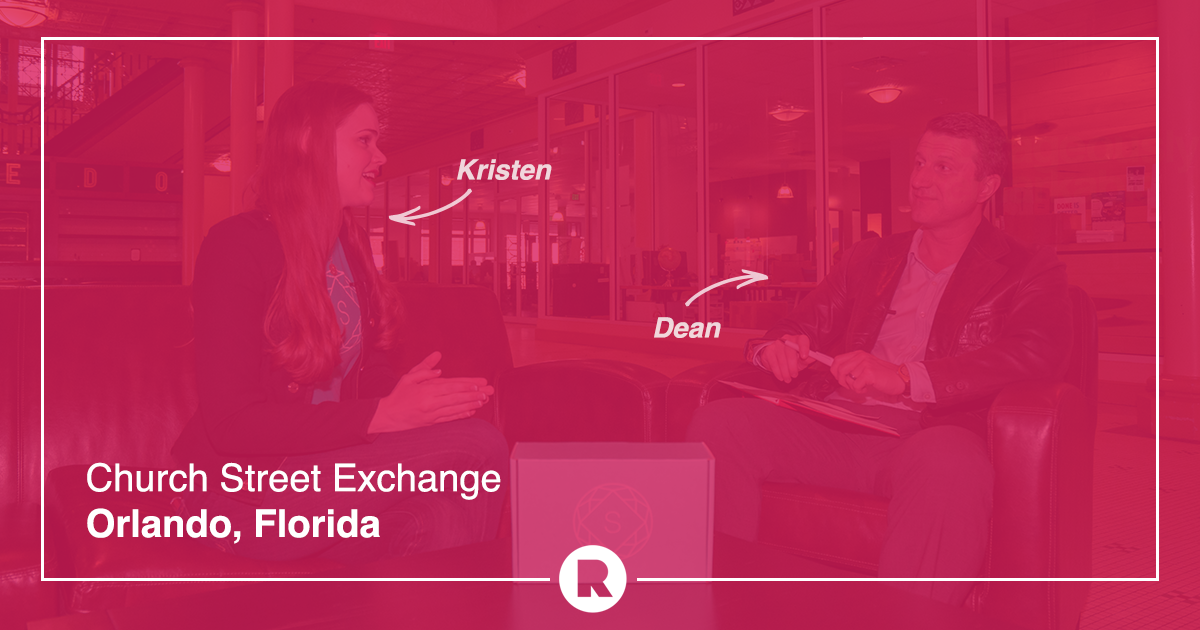
Dean: Thanks for meeting with me, Kristen!
Kristen: Thanks for having me.
Dean: So tell me, where did you get the idea for Statusphere?
Kristen: I was in college I had a professor that told me, it was actually in one of my first intro to advertising classes, that the only thing that’s going to make being young a benefit when you graduate is learning everything you can about social media. He said start a blog as soon as you can. It had nothing to do with our class, it wasn’t for a class, but he just said start a blog. Literally that night, I went home and I was like okay, I’m going to start a blog. I had no idea what I was going to write about or anything and then I slowly got into it. It was a food and baking blog. I had a lot of fun with it. I had no idea that influencing was a thing. I published for like a year and then I started seeing other bloggers getting promotional activity and all of a sudden, I started getting paid, a little here and there, extra money. It was great. In the meantime, I ended up graduating, getting a job at an agency, and they were like well you’re an influencer already, so why don’t you handle the influencer marketing for our clients because you have the most experience in it.
I was an influencer and a brand
Dean: Did you get the job because of the blog?
Kristen: I actually did. Every job I’ve gotten was because of that blog, so it was actually Jim Hobart, you might know him locally, he was my professor that told me to start the blog and he has a photography company locally. Whenever I see him, I’m always like thank you so much for doing that cause it really changed everything. But yeah, so then I was both sides of the coin. I was an influencer and a brand and that’s where I was seeing holes in the communication, in the process, in the price points. That’s when I was like why isn’t there a subscription box for these influencers. It would fix a lot of problems that are on both sides, so that’s where the idea originally came from.
Dean: I noticed on your website that it says it’s an exclusive marketplace where brands and power middle influencers connect. What do you define as a ‘power middle influencer?’
Kristen: Yeah, so some people call them micro-influencers, which is probably the industry standard term, but we prefer ‘power middle’ because I feel like it sounds better for what they are because they really are powerful, especially when you can aggregate them together. We define them as an influencer that typically falls between 5,000 to 25,000 followers …
Dean: Does the 5,000 to 25,000 number have to be on one platform or an aggregate of all?
Kristen: Right now, Instagram is the one that’s most requested for us so that’s the one that’s in our starting package. It differs on different platforms, but Instagram is where that 5,000 to 25,000 comes in, but the number followers really doesn’t matter. I just tell people that so that they can get a gauge. What’s more important is their engagement rate, the actual level of content that they produce, and how often they produce it. So we look at a bunch of data points and we only accept 10% of influencers who even apply to be on our platform.
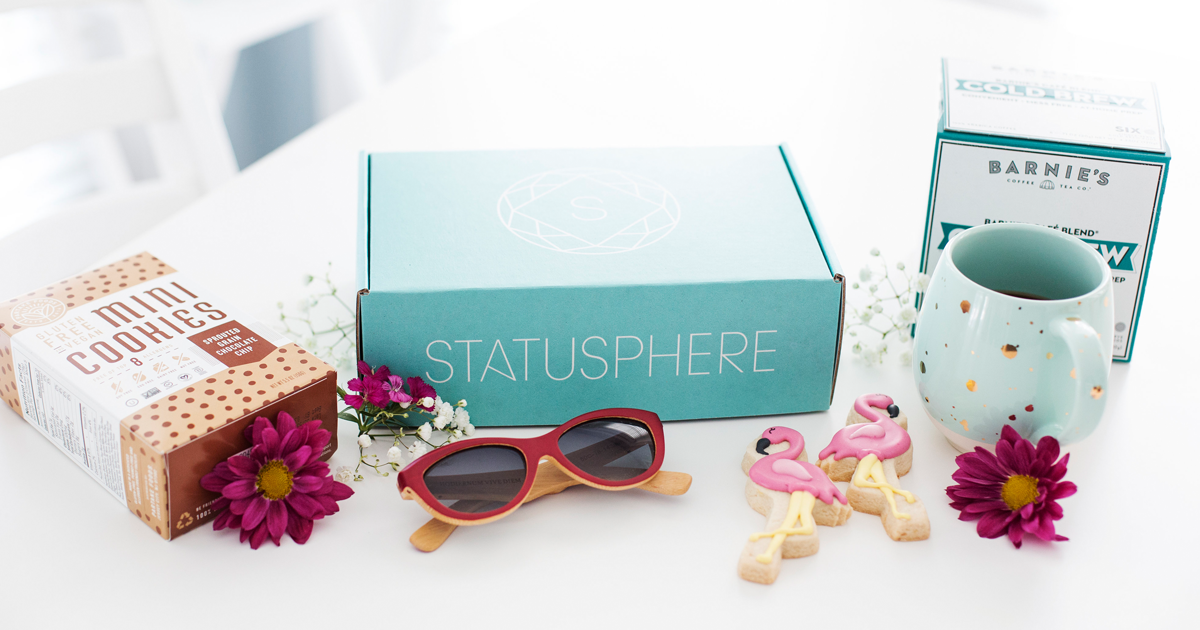
Dean: It always amazes me because when I post things online, sometimes when I post things on Linkedin, and let’s just say based on what engagement I normally get, I’ll think okay, that post did not get a lot of engagement, but then people in real life will mention it to me [for weeks to come]. You don’t actually realize how people are connecting with it [based on online stats]. So to your point, I think it’s almost like somebody with 5,000 real, actual real followers, is so much more powerful than someone with 25,000 pseudo-followers.
Kristen: Exactly, to be honest, probably our lowest threshold is around 2,500 if they have a high enough engagement and really, that’s because the brand side and the marketer side is still learning about the whole follower count not being as important, so I think that there’s an opportunity to go even lower as the market is ready for it.
Even the ads, as you probably know, don’t perform as well …
Dean: Okay, so I have a philosophical question for you. Who is your customer? Is it the brands or is it the influencers, OR is it the end user [who buys the product the brand is promoting]?
Kristen: That’s a great question. So, influence marketing is a two-sided marketplace, but we like to say that we’re influencer first. That’s a big thesis of our company, to ask would the influencer like it? If we don’t have influencers, we don’t have anything else. I found that as an influencer, a lot of the platforms don’t care about you like they should, so that was always a really big deal to me from the beginning that they actually take the time to build it with them first in mind. They get a box of products each month in exchange for posting about them, but I was actually tested a lot and did a lot of customer interviews with other influencers before even starting because I wanted to make sure that they feel valued and they felt like we were bringing them enough value.
Dean: Does it ever irritate you that in Instagram, you can’t link? For some reason, I feel like it’s a captive platform, which is great in some ways, but would that be a pro or a con for you if you could link?
Kristen: Yeah, the linking would be great because it would be easier to track attribution and I think they’re testing it because they’ve allowed some influencers the opportunity to link on their story, so we’ve seen some interesting points with that, with the whole swipe up to see. What’s hard is that Instagram was never created as a clickable platform, so I feel like they’re having a challenge trying to get it going. Even the ads, as you probably know, don’t perform as well because you don’t go to Instagram to leave Instagram. It’s not like some of the other platforms. It will be interesting to see where it goes. I think, either way, it would help us track more attribution if they did add more linking ability, but even without it, the content created is one of the biggest pieces of ROI, or the pieces of why the brands come to us is actually for the content itself and the rest is gravy almost.
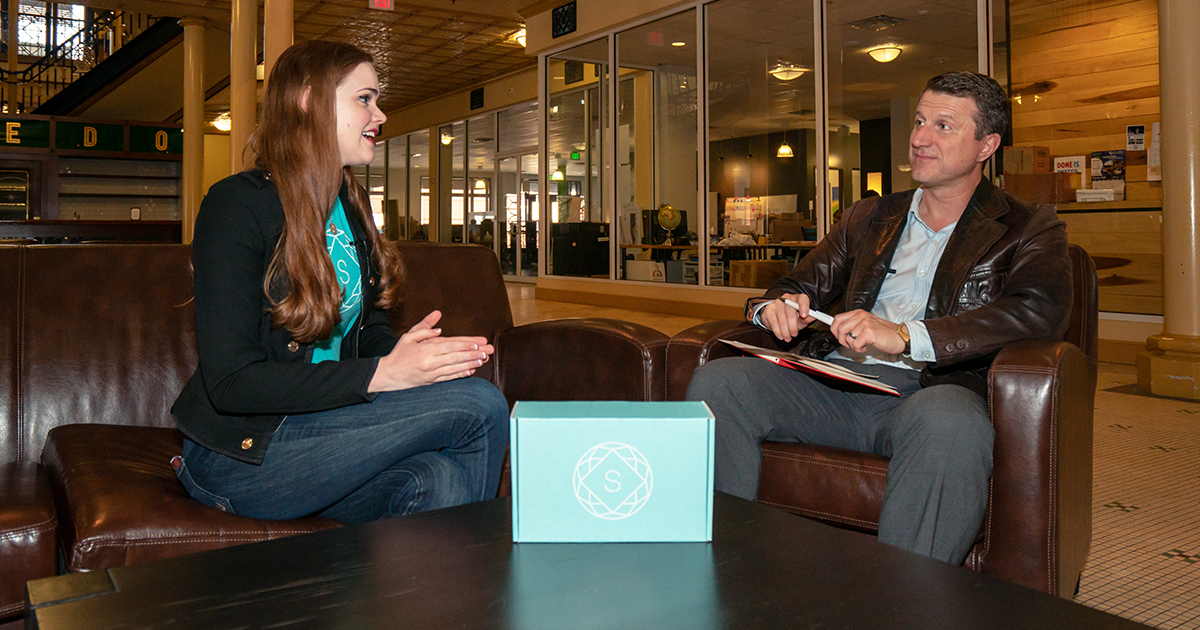
Dean: Someone made an interesting point to me I can’t remember however long ago, but they said that Instagram is the first universal platform because you don’t need to know the language to look at pictures. Pictures are the most universal way to convey a story.
Kristen: I agree with that. People had a lot of backlash when they allowed you to post more than one picture at a time because they were like the point of Instagram is trying to capture it all in that one photo. I think that the user has adapted to it well, but yeah, Instagram is definitely an interesting social platform.
… I’m going to regret it, so I turned it down
Dean: So what’s been your biggest challenges throughout this journey up until today?
Kristen: I would say the first biggest challenge was just making the jump to do it. I was working at the agency, I loved my job. I worked at Greenhouse Agency and they were actually very supportive. My boss, which I think is really, really rare, that your boss would be supportive of you trying a new venture, but he was really supportive and I think having Caleb’s support made me feel like I could do it because he had been in the marketing space a long time and he thinks it’s a good idea, and I really appreciate him for not holding me back for his selfish reasons. That big jump was a lot and I will say that right when I was about to start Starter Studio, which is the early stage accelerator that I was like if I get into this accelerator, I’m going to go for it. I found out that I got in and right when that happened, I actually got an amazing job opportunity, one that I would never have in a million years thought would happen. For someone at my stage and everything, it was phenomenal and everyone was like there’s no way you can turn that down, and I like didn’t sleep for a week because I have to decide. Finally, I was like you know, if I don’t do this, I’m going to regret it, so I turned it down. But that was the hardest decision or challenge that I think I had in this journey. There’s always ups and downs, as you know as a business owner. Whenever there’s a high, you know there’s going to be a low, followed by another high. There’s just no in between, but I think the biggest thing was just the jump.
Dean: I often say that I like it when a few bad things happen in a row because many times, a lot of good things will happen in a row, so I have conditioned myself to look at bad things as a sign of good things to come.
Kristen: [laughing] It’s funny that you said that because I think I changed that mindset only a few months ago. I always, when it was really good, was like oh no, something bad is going to happen! Then I realized, I never had the opposite outlook and I really tried hard. I talked about that a lot with our team, whenever it’s bad, something good. I think that’s funny you brought that up because I totally agree.
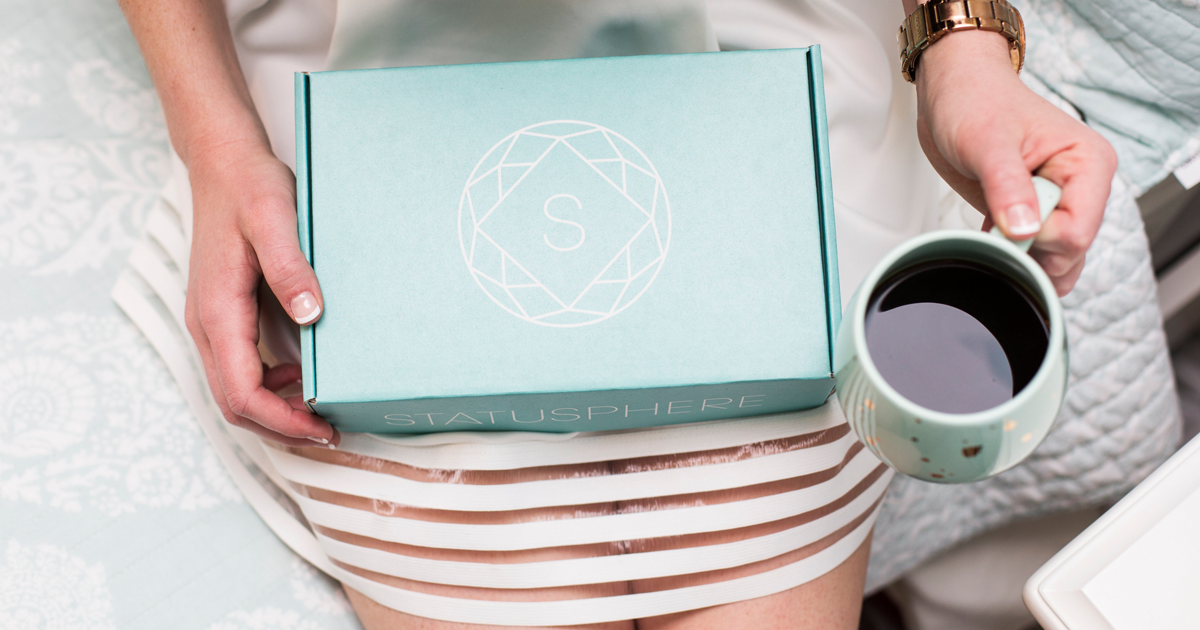
Dean: Is there a piece of advice that you think has been the most valuable for you in your journey that you received at some point that you remember?
Kristen: Well, the one I mentioned from Jim Hobart who said start a blog …
Dean: How about post starting the business?
Kristen: One of my favorite best mentors, you interviewed her, was Suneera. We meet monthly and she’s been so supportive of this entire process and she’s always … I think she’s really helped to build that confidence. Watching her go through her journey … I met her when she was just a one-person operation and watching her grow … so it wouldn’t be maybe one piece of advice, but it was more through her actions of watching her take her company from one to now 50 people, it just was that you know, ‘I can do it’ piece was really instrumental as well in our journey.
… one of the first investors in several ‘unicorn companies’
Dean: If you could send yourself maybe a tweet, like something that short, back in time five years, and you could only send one, what would you tell yourself?
Kristen: It sounds cliche, but it’s ‘just do it’. Don’t think too much. I’m a big pro/con person, but once you know, if you keep going back and forth, once it clicks, don’t wait because you’re just wasting time. Even if it’s not perfect, I think there’s a quote that says something like ‘done’ is better than ‘perfect.’ I think that’s really powerful because I think that stops a lot of people because they think it needs to be perfect, but yeah.
Dean: Is there something recently that you’ve been maybe feeling like you’ve been over-perfecting?
Kristen: It’s a good question. I fall in that trap for sure. My background is in content marketing and blogging so I will say that with our blog as we’ve grown, I haven’t … I wrote like the first 40 blogs. Now we’re trying to expand and having our team expand and do it and I feel like I’m way too much of a perfectionist and then you end up being that bottleneck to actually getting that content out there. That’s my biggest problem right now is trying not to … it’s your brand, you want to make sure that it’s perfect, but at the end of the day, done is better than perfect.
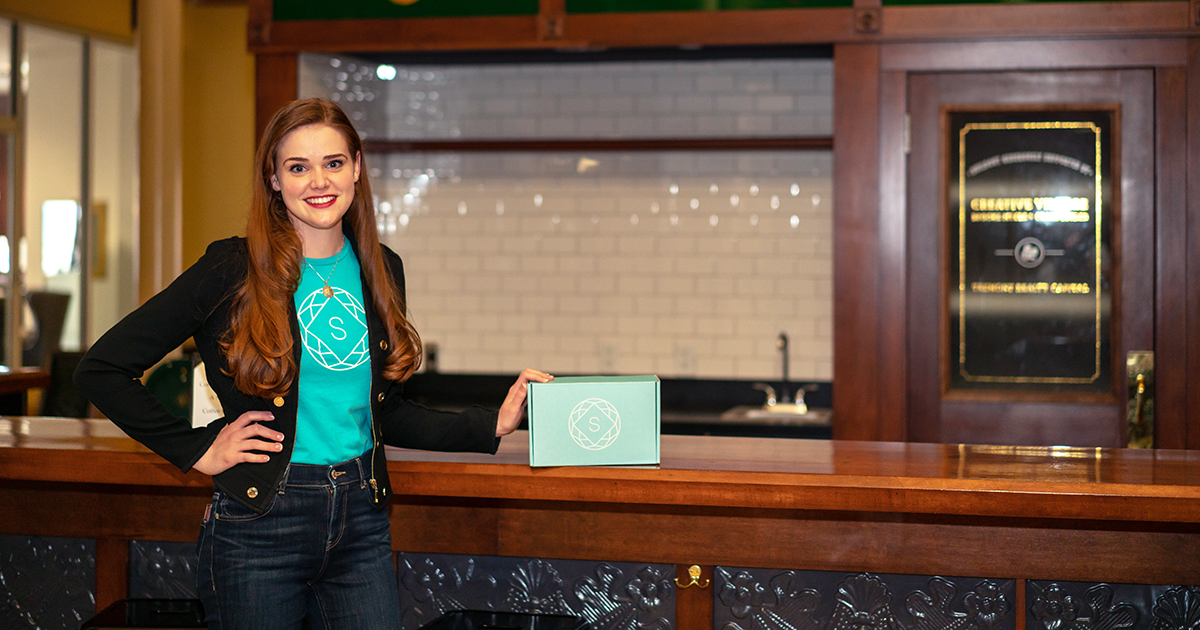
Dean: So, I did want to make sure and congratulate you. I saw that you were recently accepted into the Launch Accelerator program. Tell me about the program and do you have any goals attached to it?
Kristen: Yes, for sure. The program is the Launch Accelerator out of San Francisco. It’s Jason Calacanis’ program and he is well known for being one of the first investors in several ‘unicorn companies’ is the term, such as Uber and Cozy, so it was crazy pitching him to begin with when we first pitched him. I think that was the most nervous I’d ever been was pitching him and giving myself a pep talk beforehand, being like you know your stuff, just do it. The program itself has been amazing. So, the whole goal of the program is to get you your round of funding. We actually just kicked off our raise and each week, it’s a 12-week program, and each week we actually go in and pitch six new investors. He lines them all up for you …
Dean: So, six a week for twelve weeks … 72 pitches? You need to record those last couple because …
Kristen: They actually record all of them and they make us watch them back. I think it’s like the most amazing experience and opportunity because when do you get to record a VC pitch meeting and their feedback and just having them lined up for you weekly. So now, it’s really on us to make the most of this, so that’s what we’re trying to do.
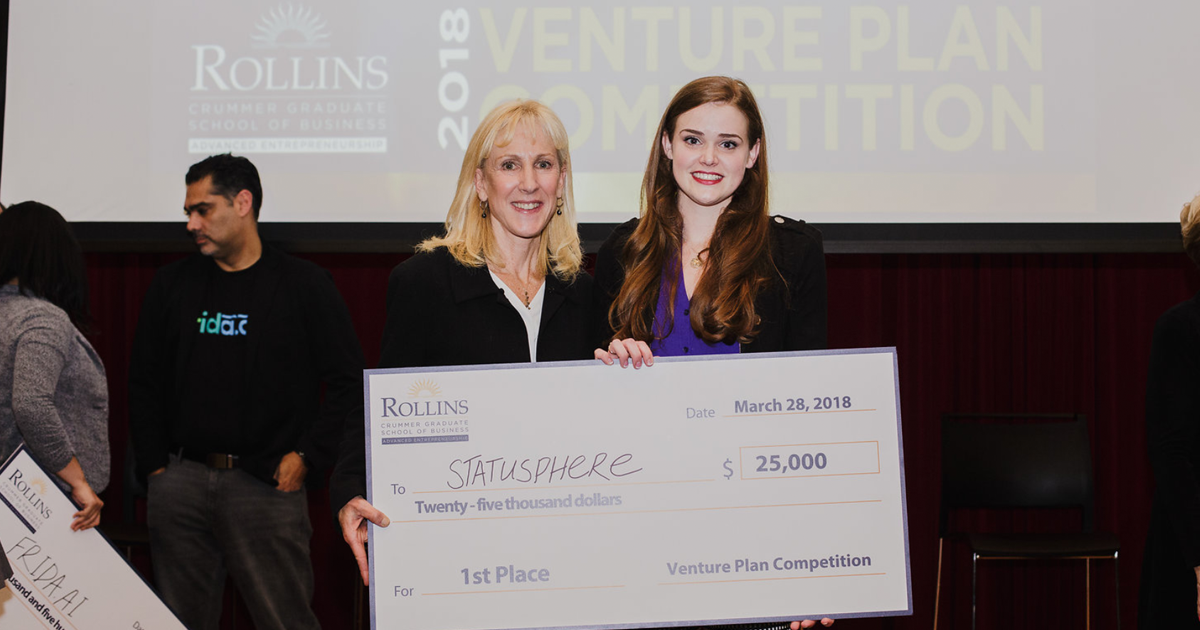
Dean: I think that alone by that last pitch, you’re going to be so fine-tuned.
Kristen: Yeah, the pitching process has been so fascinating. I went through Starter Studio and Firespring Fund, which is now I believe called Starter Studio fund. They renamed it. I have to give so much credit to them because I went over there not knowing … you feel like you’re going into the big leagues when you’re over there. When I pitched, I actually got so much great feedback on it and I haven’t even had to tweak it as much as maybe some of the other teams there and I think that’s a real tribute to the coaching that I had. By the end of it, I should be able to do it in my sleep.
… you’re spending half of your time on an airplane
Dean: I will say that I read this online post where somebody shared what they learned after pitching like 100 investors, and one of the things they said kind of broke my soul. They said don’t send thank you notes to people you pitch because they view it as a negative because if you have the time to write notes then your product or your company must not be that hot. I was like I’m not going to believe that one. I don’t want to believe that.
Kristen: I think it depends on what you’re going after. It goes back to the type of investor you want. I think that’s really, really important and if you are lucky enough to be in a situation where you can be at all picky, and privileged to be in that position, finding the right partner is so important. So if somebody is telling you not to write thank you notes, are they the right person? I don’t think that that’s true if you’re looking for somebody who aligns with you. I will say that the biggest thing that pitching does is that it simultaneously wants you to have a huge ego while like simultaneously crushing your ego, so it’s a very weird environment to be in and to get used to and I don’t think there’s anything in life that I’ve found quite like it.
Dean: What do you think has been the biggest general misconception about entrepreneurship?
Kristen: I think that it’s the whole glamorous thing. A lot of it is tv shows, there’s Facebook. I don’t know, it’s like everything is a meme. There are shows like Silicon Valley. I just think that it’s so much hard work and everyone only sees like that tip of the iceberg analogy and everyone is like it’s so amazing because you’re flying back and forth like weekly. I am so happy and I know I’m in a very privileged spot and the opportunity is amazing, but it’s still a lot of hard work when you’re flying back and forth weekly four weeks in a row and you’re spending half of your time on an airplane. You have to really take care of yourself because it’s like literally getting sick. You have to take the time because it’s a lot. So I think that’s the biggest misconception, that’s it’s glamorized and you’re just up there pitching on stage on Shark Tank or something, but realistically, like 99% of your time is like up late emailing and on a plane somewhere.
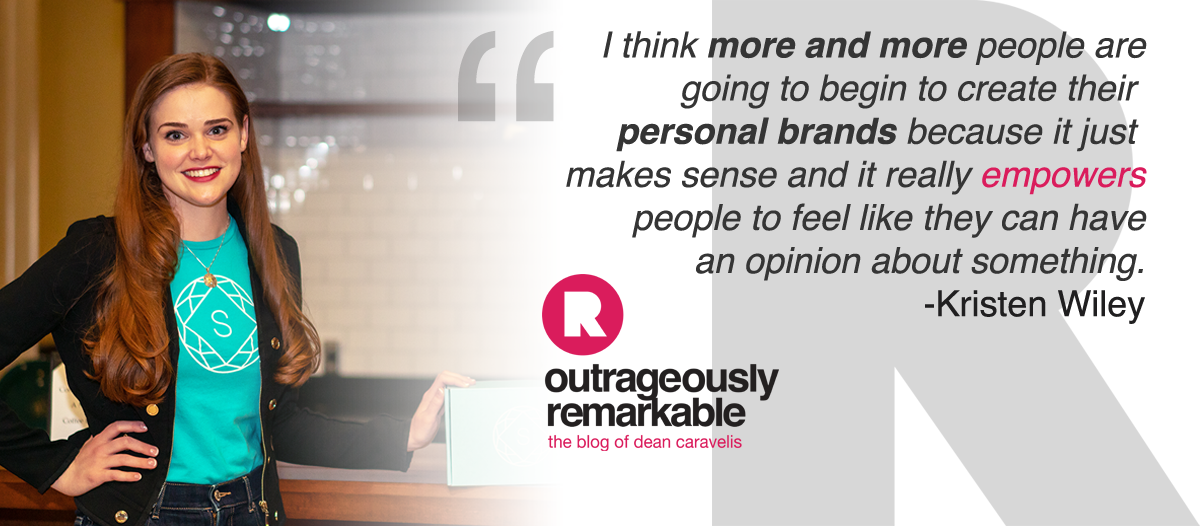
Dean: It there an individual that you would say has been your greatest inspiration, whether it’s somebody that you know or somebody that you have or haven’t met?
Kristen: Like growing up, oddly enough, I was really obsessed with Lucile Ball. I read everything about her. Since I was like eight, I had a whole collection of her stuff. She was one of the first women to own a production company and she’s done a lot of firsts from a business perspective and I got really into that, so she was probably the first idol that I had, which is kind of random and old school, but I found it really fascinating and all of the things that she had to overcome. As far as nowadays and alive, I would say Suneera has been amazing to watch and it’s like that whole representation thing because seeing somebody do it really does make a difference. It makes it attainable. She’s just been so amazing at mentoring me and helping me.
women control over 70% of buying decisions
Dean: That’s awesome … I wanted to switch gears back to Statusphere. How does a brand know that they’re a good fit for you to be able to help them? Is there a certain vertical? Is there a certain brand profile?
Kristen: We started targeting the beauty industry because they have really great margins, they’re used to giving away products, they’re also used to influencer marketing as a whole, they do it a lot. So, the sale seemed easier, but we started getting reached out by mini-verticals, like consumer packaged goods and coffee brands, tea companies, we’ve had a book company … just this month we’re really excited to have a smartwatch company owned by Fossil, they’re in our box this month … Headphone company … I would say our sweet spot in terms of company size is we have two spots. It’s kind of that smaller company that has some funding, they’ve done influencer marketing in-house, but they can’t scale it. That would be one group. The second group is these larger companies that don’t want to build out a whole department for influencer marketing, but they’re ready to scale as well and they want to do a larger package. So, we kind of have two ends of the spectrum in terms of size of company, but in terms of vertical, we’ve done some medical driven products, we have an eczema client, so it really has been very interesting to discover exactly where our niche lies, but we do have all female influencers to the products do typically …
Dean: Is that by design?
Kristen: Yes, we did it on purpose because first of all, women control over 70% of buying decisions, so it just seemed naturally more products that would fit into that. Also, the way that the influencer marketing space is run right now, female influencers especially on Instagram, are really doing well. I think we’ll stick with that for quite awhile.
… the influencer marketing model will get even more micro …
Dean: What does the influencer of the future look like?
Kristen: That’s a great question because I think that Instagram itself has enabled a normal person to have their own brand, which has been so fascinating. What we do is really word-of-mouth marketing. It’s been around for ages, before computers, before anything, but now it’s just translating to the digital world and allowing people to have a platform who otherwise wouldn’t have one. So it’s been really interesting to see. Where it goes from here? I think more and more people are going to begin to create their personal brands because it just makes sense and it really empowers people to feel like they can have an opinion about something. One of the things that we’re really passionate about is why should even advertisers be telling you what you should buy instead of real consumers? I feel like the influencer marketing model will get even more micro per say and it’s going to be even more consumers telling other consumers what they want to buy.
Dean: Is there another platform that you think might be the next big influencer platform kind of like Instagram?
Kristen: The whole Snapchat thing is very fascinating because as soon as Instagram came out with their Instagram Stories, they really took a lot of that market share. We saw it with our influencers overnight. I haven’t seen a lot … it will be interesting to see what the next generation kind of goes toward. I haven’t seen any promising ones. Some of the younger influencers have been using Vsco, are you familiar with it?
Dean: No, I’m not familiar with it.
Kristen: It’s an editing software for photos, but oddly enough, a lot of high school-aged people use it as like what Instagram was to us when it first came up. So they use Instagram as their Facebook and now they have this other platform for their more artsy stuff, so that’s been interesting just to research that a little bit. But, I haven’t seen one yet.
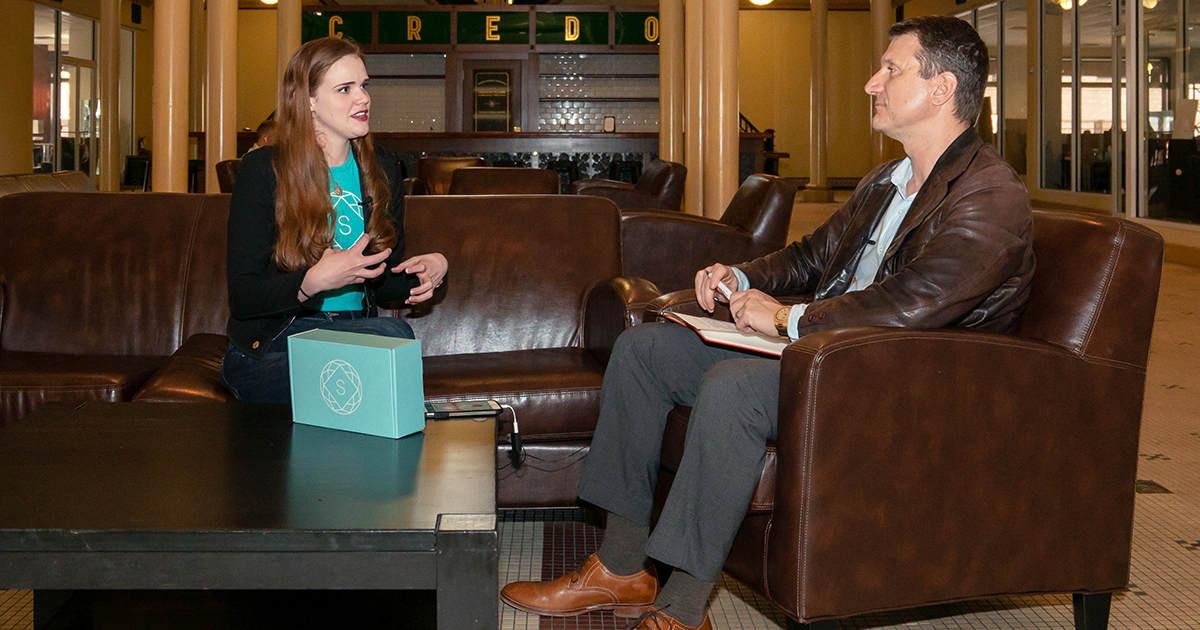
Dean: Just another thing off the top of my head as I’m looking at the whole dynamic of it, one scary part I think is how much power the platforms have. Where like overnight, they can change. The thing about owning your own personal brand becomes so important because you can take that as a portable asset. I don’t know if that’s a question … [laughs]
Kristen: It’s interesting that you brought it up because we try to make our platform ‘platform agnostic’ for that very reason because we know that in a year, all of a sudden it can change. It was Facebook a year ago and now it’s Instagram, so we really don’t want to make it too ingrained in one platform for that reason. We know that the influencers are going to go to wherever they need to with the personal brand that they built. It’s something to take into account because when you’re in the moment, it’s so easy to think like it’s Instagram, or it’s Facebook, because, in just a few years, Instagram has really taken off, so who knows what the next one will be.
Dean: If you could conspire the universe to bring a few specific brands to you, are there any specific brands that you think would be a great fit for Statusphere that you haven’t worked with yet?
Kristen: We have a whole list of big brands that we’d love to talk to. I mean, we’d love to talk to a Sephora type company because I really think that with the different products that they have and they’re coming out with their own products more and more versus bringing in other products, so it would just be an interesting vertical. We do very well in the beauty space because of the type of influencers we have as far as the results go, so beauty brands would be phenomenal to connect with. And then it would be interesting to learn more about other retail brands that are looking to get into stepping up their game, whether it would be someone like Macy’s or larger retail that’s trying to drive the market because I think that those types of businesses are looking for new ways to connect.
Dean: A lot of them [the traditional retailers] are running fast to try to do that because they are on the ropes and closing left and right.
Kristen: Exactly, and they need to figure it out quick or before they know it … So, those are just some of the ones that come to mind, but we have a whole list of brands that we’re going to hopefully try to target over the next year, big and small.
Dean: So Kristen, you’ve been able to gain funding, I noticed that you won some competitions, one recently as well …
Kristen: Yes, just last week.
Dean: You’ve been getting great traction. What is your secret to being outrageously remarkable?
Kristen: One thing that I get common denominator in every pitch I’ve done, whether it’s on the west coast or on the east coast, that seems to resonate with everyone is that they all say that the passion comes through for what you’re doing. I think that’s undervalued sometimes to people who are really in the weeds with the numbers or with the business model. I think that’s really been part of why we’ve been in such a great situation and I’ve been really lucky, but I also think that the passion comes through and I’m thankful it does. Everyone tells me that and I tell them that I can’t control it, so I don’t know how to tell people to add it, but I really am passionate about it. I love what I’m doing. That doesn’t mean it’s easy every day by any means, but I really think it’s the passion for it. Even with our team building it out, we’re a small team right now, but everyone is really passionate about what they’re doing. I think that makes such a big difference.
Dean: You definitely have energy and enthusiasm and it is infectious, so don’t stop!
Kristen: Well, thank you! I don’t think I can control it, but I’m really thankful that it’s there.
____________
Find out more about Statusphere here on its website, especially if you are a brand or micro-influencer!
Pics inside Church Street Exchange by Joshua Johnson -> Check out his photography work here.
Want to keep up with Dean’s blog? Subscribe here to be an insider